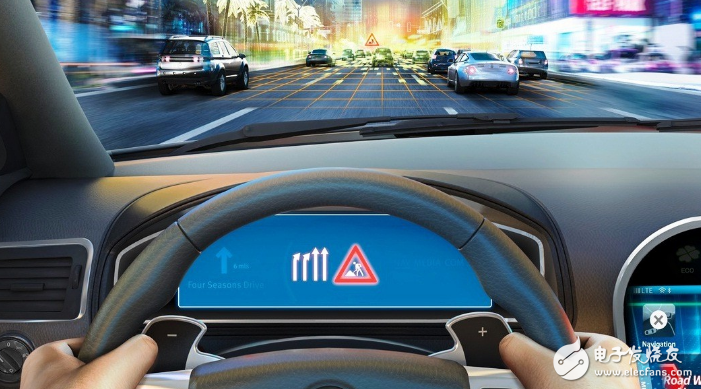The two technology industry acquisitions that took place a few days ago are less than 24 hours apart, and are related to the automotive sector; one is Samsung's $8 billion acquisition of American automotive electronics supplier Harman, and the other is Siemens (Siemens) acquired EDA operator Mentor Graphics for $4.5 billion.
Samsung and Siemens are not traditional automakers, but their motives for launching acquisitions are similar—trying to gain a foothold in the growing, highly networked and automated automotive interior technology.
Germany's industrial giant Siemens believes that Mentor's IC and system design, simulation, and manufacturing solutions are key to developing "smart" and "networked" products, including autonomous vehicles; the company currently offers digital enterprise software tools and related Hardware to support the needs of the automotive industry. Samsung said that the acquisition of Harman can help the company take the lead in the growing automotive technology field.
Today's automakers and first-line auto parts suppliers are facing unprecedented challenges in responding to the complexities of automotive system design and the need to be the core of connected cars. The next generation of highly automated vehicle leaders will not necessarily be traditional car manufacturers, but may be those who have mastered automotive technology solutions.

It is understood that Harman is Samsung's largest overseas acquisition target to date, and the transaction is subject to approval by the former shareholders' meeting. Harman is known for its connected car technology, which offers high-end automotive multimedia, navigation and visual display systems, and has recently strengthened its lineup of automotive safety technology products through a series of acquisitions.
Harman said that the company's sales in the past 12 months ended in October reached $7 billion, while the total order booked in June was $24 billion.
Samsung pointed out in a press release that the acquisition of Harman, a popular vehicle technology supplier, will allow the company to occupy a prominent position in the large-scale and fast-growing networking technology market, especially in the automotive electronics field. Indeed, Samsung has not hidden its ambitions for the auto market, making it clear that auto electronics is the company's "priority strategy."
However, according to Luca De Ambroggi, chief analyst of automotive semiconductors at market research firm IHS Technology, Samsung's market share in the automotive electronics market is almost “negligible,†and the company's main strength in automotive electronics is in telecom entertainment systems. Infotainment) NAND flash memory.
However, given Samsung's leadership in the mobile device, display technology and semiconductor markets, it seems natural to develop the company as a "smart" and "networked" technology supplier to the automotive industry through the acquisition of Harman.
In fact, Samsung's motive for the acquisition of Harman may not be much different from the motivation of Qualcomm's acquisition of NXP Semiconductor, the mobile phone chip leader; according to De Ambroggi's observation, the only difference is that it is a line through acquisition. Automotive electronics industry Harman, Samsung "advanced more than one level in the automotive electronics value chain."
If Harman decides to use only Samsung chips in the future, this acquisition may be a problem for other automotive chip suppliers; De Ambroggi believes that the same is true: "I can imagine other semiconductor manufacturers will also think To move forward in the automotive electronics value chain, it is possible to acquire other competing first-line automotive electronics suppliers.
Why did Samsung choose Harman?Harman is a well-known supplier of audio, electronics and telematics systems in the traditional automotive industry. What is the most attractive aspect of Samsung for Samsung? De Ambroggi said: "At first glance, almost every part is attractive."
Samsung explained in a press statement that Harman is: "The market leader in connected car solutions, with more than 30 million cars in the global market equipped with the company's connected car audio system, including embedded vehicle communication. Entertainment systems, telematics systems (telemaTIcs), and networked security solutions."
In addition, Samsung found that Harman's experience in the automotive industry is valuable, especially in terms of "designing and integrating complex automotive technologies" and "long-term partnerships with most of the world's largest automakers."
It is worth mentioning that Harman has recently decided to become a leader in automotive network security solutions. The company acquired two companies, Symphony Teleca and Red Bend Software, the former software and service experts for cloud and wireless services. They are over-the-air software updates and other software management service developers.
Earlier this year, Harman also acquired another Israeli company, TowerSec, which provides intrusion detection and anti-blocking technology for automotive electronic control units (ECUs) and telematics systems.
Obviously Harman learned a lot from the hacking experience of his networked car technology. In 2015, the 2014 Jeep Cherokee, which was successfully invaded by professional hackers Charlie Miller and Chris Valasek, installed the Harman-produced car host; The host can provide the Wi-Fi access point for passengers in the car.
Thanks to the above acquisitions, Harman may now have the most comprehensive vehicle network security technology; can Samsung use this to make a big difference in the automotive electronics market? And let us wait and see.
Compilation: Judith Cheng
(Reference text: Samsung's Naked Auto Desire: $8B Harman Buy, by Junko Yoshida)
Easy Electronic Technology Co.,Ltd , https://www.pcelectronicgroup.com